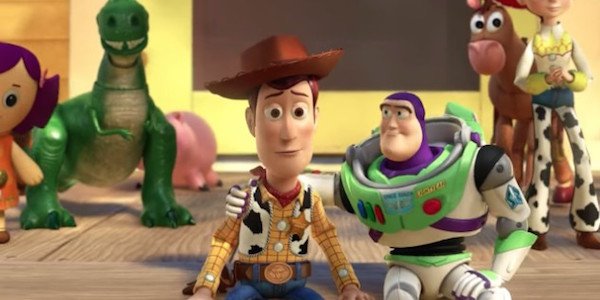
The Academy of Motion Picture Art and Sciences has been battling to raise awareness of the Oscars for a few years now with mixed results. Its latest attempt comes in the form of several changes, one of which is the addition of a new category that is "being designed around achievement in popular film." The other way of reading that is "Best Blockbuster," and the news was largely met negatively by film critics and people in Hollywood who saw the addition as the Oscars taking one step closer to becoming the MTV Movie Awards.
Not a great start, and the Oscars were just vague enough that there are a few questions hanging in the air about the new category. The Academy will likely address all of these the closer it gets to the Oscars' airdate next year, but until then, movie lovers are left to wonder the logistics of how a Popular films category will work and what it means for the film industry at large. You can bet that CinemaBlend has some questions, which we've collected in no particular order.

What Defines A 'Popular' Film?
The introduction of this category is almost certainly meant to address the criticism that the Academy gets for its snubbing of genre films, which have a lot of success with fans and the box office, but little recognition in the awards circuit. However, one would figure that the criteria for this category have to be more than "people really liked it." Get Out, which was nominated for Best Picture, grossed over $250 million worldwide, was loved by critics and fans, and it was a horror movie that broke ground for the genre. If there was a popular films category, would it have qualified? Best Picture winner The Godfather is one of the most well-known movies ever made. Plenty of Best Picture nominees and winners have been popular, so what exactly is the cutoff? The number of special effects and capes?

Is There A Limit To Box Office Total?
Assuming that the amount of money a movie makes does play into whether it can be nominated, what would the minimum total need to be? Blockbusters have a reputation for scoring big at the box office, with obvious examples being Star Wars and Marvel movies. On the other side of the spectrum, Best Picture nominees have a reputation for being critical darlings that no one goes to see. Historically there have been a lot of Best Picture nominees that have done well at the box office. Last years winner The Shape of Water (another genre movie) grossed almost $200 million worldwide. Why does there need to be a popular film category when Best Picture winners can and have been popular? Plus, doesn't making the box office such a big focus on winning an award basically saying that making money is more important than being, well, a good movie?

How Many Films Can Be Nominated?
For the Best Picture category, up to 10 films can be nominated. This change was largely inspired by when The Dark Knight, a film that many people thought was a shoe-in for Best Picture nomination, was snubbed in 2008. After that, the Academy doubled the number of nominees to a maximum of 10 in the hopes of appealing to more audiences and having a wider range of nominees. While this did make more room for movies like Toy Story 3 and Mad Max: Fury Road, the selected films are generally still more of the same. So, will the popular category open it to 10 as well? Or narrow it down? While there are always more than 10 films worthy of Best Picture, it's tough to say that the same is true for blockbusters. Though they might make money, there are more average to poor blockbusters than genuine good ones.

How Will This Increase Viewership?
Part of the reason that this new category is being introduced is to attract more viewers for the Oscars award show. It's right there in the emphasis on popular. By shining a light on movies that millions of people have seen, the Academy hopes that they will tune in with the hopes their favorite will win. This logic makes a little sense seeing as how people very rarely see all 10 Best Picture nominations, thus sparking very little enthusiasm for the show itself. However, just because Black Panther or A Quiet Place might get an Oscar doesn't mean more people will watch. If people only care about that one category, then why would they want to watch the rest of the show? What's stopping people from just waiting until the morning to watch a clip online? The Oscars are also going to be shortened, but that doesn't seem like much more incentive for people to tune in.

Why Did Blockbuster Need Its Own Category?
As previously said, blockbusters tend to gain a big audience, and the idea is that if they get their own award, that same audience will boost the dwindling Oscars ratings, which have been on the decline for the last few years. But there are plenty of other movie crafts that deserved their own category, arguably more so than blockbusters. There's no real reason a blockbuster can't win Best Picture, but casting, stunts, and voice acting will never be recognized in the current lineup of categories. The Academy is shooting for the mass market, but if it really wants to bill itself as the cinephile awards show, then why not throw love at these underappreciated departments in moviemaking? In fact, one could argue that introducing a stunt category would make a better "popular" film category due to how reliant some of those blockbusters are on stuntwork.
Your Daily Blend of Entertainment News

Will Anyone Want To Win This?
One of the main critiques of the new category is that it feels like its pandering. Rather than just nominating a genre film or two for Best Picture, the Academy is shuffling these movies off to the kid's table. "Oh, you made a lot of money and people make memes out of your movie? Here's an award we found just for you." If the movie isn't also voted for Best Picture (which the Academy confirmed can happen), then that's basically saying it wasn't good enough. Which is fine -- not everything needs an award -- but it feels insulting in this case because it's assuming that blockbusters need their own category to have a chance to win anything prestigious. There's a difference between being awarded because audiences liked the movie versus being judged as the best by your cinematic peers. This writer doesn't see why people would want to win if that is the case.
Matt has lived in New Jersey his entire life, but commutes every day to New York City. He graduated from Rowan University and loves Marvel, Nintendo, and going on long hikes and then greatly wishing he was back indoors. Matt has been covering the entertainment industry for over two years and will fight to his dying breath that Hulk and Black Widow make a good couple.

